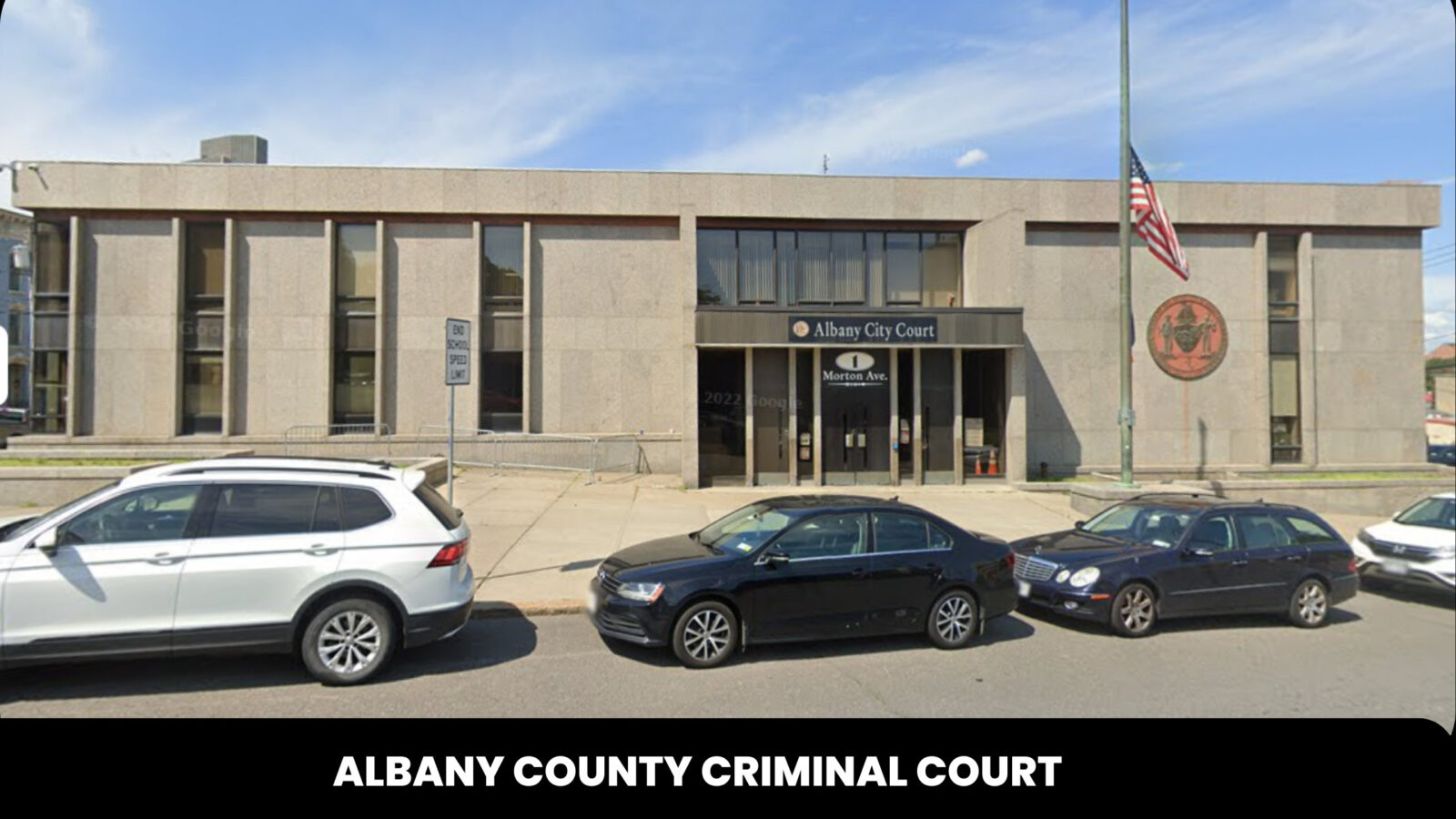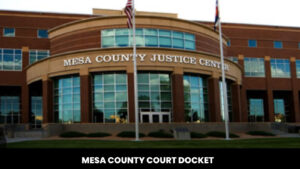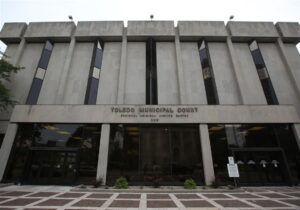Albany County Criminal Court: A Comprehensive Guide
Introduction
Welcome to our comprehensive guide on the Albany County Criminal Court! In this article, we will delve into the functions, processes, and significance of the Albany County Criminal Court system. Whether you are a legal professional, a defendant, or simply someone curious about the workings of the court, this article will provide you with valuable insights.
The Role of the County Court
The County Court is an essential part of the New York State judicial system, operating in each county outside New York City. Its primary responsibility is the prosecution of all crimes committed within the county. The County Court holds exclusive authority to conduct trials in felony matters and shares jurisdiction with local city, town, and village courts for misdemeanor cases and minor offenses. Civil cases involving monetary awards of $25,000 or less are also heard in the County Court.
Key Personnel
Hon. Andra Ackerman – County Court Judge
Judge Andra Ackerman presides over the County Court and plays a critical role in ensuring fair trials and upholding the rule of law. With a wealth of experience and legal expertise, Judge Ackerman ensures that the court operates efficiently and delivers justice to the residents of Albany County.
David Cardona – Chief Clerk
As the Chief Clerk of the Albany County Judicial Center, David Cardona oversees the administrative operations of the court. He manages court records, schedules hearings, and assists in coordinating various court activities. His organizational skills and dedication ensure that the court functions smoothly.
Mary Grace Sullivan – Deputy Chief Clerk
Mary Grace Sullivan serves as the Deputy Chief Clerk, supporting the Chief Clerk in managing the day-to-day operations of the court. Her responsibilities include assisting with administrative tasks, handling inquiries from the public, and ensuring that court proceedings run effectively.
Hours of Operation
The Albany County Judicial Center operates from Monday to Friday, between 9:00 a.m. and 5:00 p.m., except on state holidays. During these hours, the court handles various legal matters, conducts trials, and provides essential services to the community.
Directions & Parking
For those visiting the Albany County Judicial Center, convenient directions and parking options are available. If coming from I-787 South, take the Clinton Avenue (Route 9) exit and turn left onto South Pearl Street. From there, turn right onto State Street and proceed for two blocks before making a right onto Eagle Street. The courthouse is located on the third block on your right-hand side, accessible from Lodge Street.
Visitors can find on-street metered parking throughout downtown Albany. Please note that some meters expire every two or four hours, depending on their location. Handicap parking is available at the front (Eagle Street) and back (Lodge Street) entrances of the County Courthouse, with designated metered spaces. The Crowne Plaza also provides handicap parking spaces. Additionally, bus services are available from various locations in the county to downtown Albany, providing convenient transportation options for visitors.
Understanding the Albany County Criminal Court
1.1. Structure and Jurisdiction
The Albany County Criminal Court is a vital component of the justice system in Albany County, New York. It operates under the State of New York’s unified court system and holds authority over criminal cases within its jurisdiction. The court is presided over by experienced judges who ensure that the legal process is fair and impartial.
1.2. Importance in the Legal System
The Albany County Criminal Court plays a pivotal role in upholding the rule of law and ensuring public safety. It is responsible for adjudicating criminal matters, determining guilt or innocence, and imposing appropriate sentences when required.
1.3. Key Players in the Courtroom
In the courtroom, several key players work together to ensure the smooth functioning of the justice system. These include judges, defense attorneys, prosecutors, court clerks, and other court personnel.
Criminal Court Procedures
2.1. Arrest and Booking
When law enforcement officials have probable cause to believe that an individual has committed a crime, they make an arrest. The arrested person is then booked into the county jail, and their personal information is recorded.
2.2. Initial Appearance and Bail Hearing
The defendant’s first appearance before a judge is the initial appearance, during which the charges are read, and the defendant’s rights are explained. In some cases, a bail hearing is conducted to determine whether the defendant should be released on bail pending trial.
2.3. Preliminary Hearing
The preliminary hearing takes place to establish whether there is enough evidence to proceed with a trial. The prosecution must demonstrate probable cause to believe the defendant committed the crime.
2.4. Pre-Trial Motions
Before the trial begins, both the prosecution and defense can file pre-trial motions. These motions address issues such as evidence admissibility, witness testimony, and other legal matters.
2.5. Plea Bargaining
Plea bargaining is a negotiation process where the defendant agrees to plead guilty in exchange for a lesser sentence or reduced charges. This process helps expedite the legal process and reduces the burden on the court.
2.6. Trial Proceedings
The trial is the central part of the criminal court process, where the prosecution and defense present their cases to a jury or judge. The defendant is presumed innocent until proven guilty beyond a reasonable doubt.
2.7. Sentencing
If the defendant is found guilty or pleads guilty, the judge determines the appropriate sentence based on various factors such as the nature of the crime and the defendant’s criminal history.
Rights of the Defendant
3.1. Right to Legal Representation
Every defendant has the right to legal representation. If the defendant cannot afford an attorney, one will be appointed for them.
3.2. Presumption of Innocence
In the criminal justice system, the defendant is presumed innocent until proven guilty. The burden of proof lies with the prosecution.
3.3. Protection Against Double Jeopardy
The principle of double jeopardy protects defendants from being tried twice for the same offense.
3.4. Right to a Speedy Trial
The Sixth Amendment guarantees the defendant’s right to a speedy trial.
3.5. Right to Confront Witnesses
The defendant has the right to confront and cross-examine witnesses presented by the prosecution.
The Role of Judges and Attorneys
4.1. Responsibilities of Judges
Judges in the Albany County Criminal Court ensure that trials are conducted fairly, oversee pre-trial motions, and impose sentences when required.
4.2. Defense Attorneys and Prosecutors
Defense attorneys represent the defendants’ interests, while prosecutors seek to prove the defendant’s guilt beyond a reasonable doubt.
4.3. The Adversarial System
The court operates under an adversarial system, where the prosecution and defense present opposing arguments to an impartial judge or jury.
Understanding Criminal Offenses
5.1. Misdemeanors vs. Felonies
Criminal offenses are generally categorized as misdemeanors or felonies based on their severity.
5.2. Common Types of Crimes
Albany County Criminal Court handles a wide range of criminal offenses, including theft, assault, drug-related crimes, and more.
Alternative Dispute Resolution
6.1. Mediation and Arbitration
In some cases, alternative dispute resolution methods like mediation and arbitration are used to resolve criminal disputes outside of court.
6.2. Restorative Justice
Restorative justice focuses on repairing the harm caused by crime through communication and reconciliation between the offender and the victim.
Appeals Process
7.1. Grounds for Appeals
A defendant may appeal a conviction or sentence on specific legal grounds.
7.2. Appellate Court Proceedings
The appeals process involves a higher court reviewing the lower court’s decision for errors or legal issues.
The Importance of Court Records
8.1. Accessing Court Records
Court records are vital for transparency and can be accessed by the public under certain regulations.
8.2. Privacy and Security Concerns
Maintaining the privacy and security of court records is essential to protect sensitive information.
Juvenile Criminal Court
9.1. How Juvenile Court Differs
Juvenile criminal court operates differently from adult court, focusing on rehabilitation rather than punishment.
9.2. Juvenile Court Procedures
The procedures in juvenile court are designed to address the unique needs of young offenders.
Specialized Courts in Albany County
10.1. Drug Court
Albany County’s Drug Court aims to rehabilitate drug offenders through treatment programs.
10.2. Mental Health Court
Mental Health Court focuses on diverting mentally ill offenders to appropriate treatment instead of incarceration.
Challenges and Reforms
11.1. Overcoming Backlogs
Albany County Criminal Court faces challenges related to caseloads and backlogs that require reform measures.
11.2. Addressing Racial Disparities
Efforts to address racial disparities in the criminal justice system are ongoing.
11.3. Embracing Technology
Technology adoption can streamline court processes and enhance accessibility.
Community Involvement
12.1. Jury Duty and Civic Participation
Participation in jury duty is an essential civic responsibility that supports the justice system.
12.2. Volunteer Opportunities
Community members can volunteer in various programs to support the court and its functions.
Conclusion
The Albany County Criminal Court serves as a critical pillar of the justice system in Albany County, ensuring fairness, accountability, and public safety. This comprehensive guide has provided a detailed overview of the court’s functions, criminal procedures, the rights of defendants, and various aspects of the criminal justice system. By understanding the inner workings of the court, individuals can better appreciate its significance and contribute to a just society.
FAQs
- How can I access court records in Albany County?To access court records in Albany County, you can visit the Albany County Criminal Court’s official website or the courthouse in person. Certain records may be available online, while others may require an in-person request.
- What is the role of a defense attorney in a criminal trial?Defense attorneys represent the interests of the defendant and ensure that their rights are protected throughout the trial. They present arguments, cross-examine witnesses, and challenge evidence presented by the prosecution.
- What is restorative justice?Restorative justice focuses on repairing the harm caused by crime by involving the offender, victim, and community in a process of reconciliation and restoration.
- Can a criminal conviction be appealed?Yes, a criminal conviction can be appealed on specific legal grounds, such as errors in the trial process or constitutional violations.
- How can I participate in jury duty?Jury duty participation is mandatory for eligible citizens. If selected for jury duty, you will receive a summons with instructions on how to appear in court.





